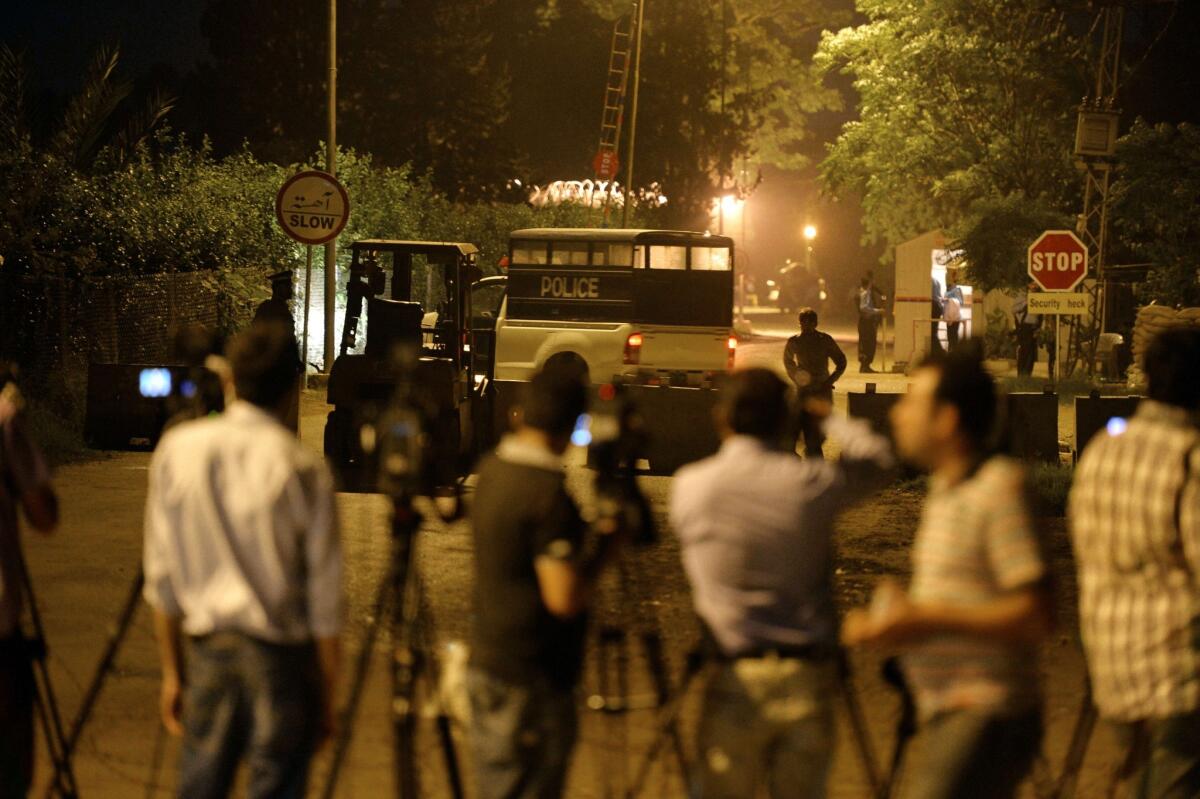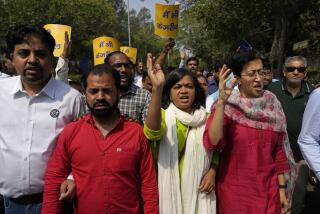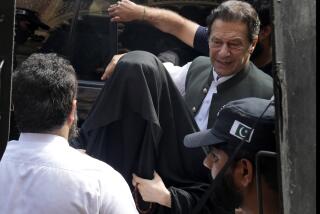Pakistan’s Pervez Musharraf rearrested after court grants bail

ISLAMABAD, Pakistan -- Just when former Pakistani president and army chief Pervez Musharraf thought he was in the clear, he was hit with a new legal challenge Thursday when police arrested him in a case involving a 2007 crackdown on a pro-Taliban mosque in Islamabad.
The latest judicial wrinkle came hours after Musharraf was released – at least in theory – having submitted about $19,500 in surety bonds to the Supreme Court after being granted bail Wednesday in the last of three previous legal cases.
Wednesday’s case involved the killing of separatist leader Nawab Akbar Bugti in southwestern Pakistan’s Baluchistan province. Musharraf had already been granted bail in cases stemming from the assassination of opposition politician Benazir Bhutto and the detention of deposed Supreme Court judges, which appeared to clear the way for his release from house arrest and possible departure from Pakistan.
But Muhammad Rizwan, a senior official of the Islamabad police, told reporters Thursday: “We have put Gen. Musharraf under house arrest in a case involving a military operation on an Islamabad mosque.”
“We will present him before a court on Friday,” Rizwan said.
The arrest suggests there is disagreement within the Pakistan government over whether to prosecute Musharraf or let him leave the country, analysts said.
Members of Musharraf’s All Pakistan Muslim League party said he will keep fighting to clear his name.
“We are hopeful that he would be granted bail in this latest case,” said party spokesman Chaudhry Asad Mehmood. “There is no strong evidence against him.”
The latest case involves a government siege in 2007 against seminary students and other hard-liners in Islamabad’s Red Mosque that resulted in about 100 deaths.
It was filed in the Islamabad High Court on Sept. 2, 2013, by Haroon Rashid, who accused Musharraf of contributing to the death of his father, Abdul Rashid Ghazi, the mullah of the Red Mosque, in the standoff.
“Over 300 witnesses had testified in the Red Mosque commission report that the operation was conducted on the directives of Pervez Musharraf,” Rashid said in his affidavit.
In other developments Thursday, at least six people were killed and dozens injured when a bomb that reportedly contained about 16 pounds of explosives detonated near a police station in Quetta, the capital of Baluchistan province.
Baluchistan has been the site of attacks by separatist rebels, Islamist militants and sectarian extremists. The bomb was reportedly planted on a motorbike.
Earlier in the day, a bomb exploded in a busy market in Pakistan’s second-largest city, Lahore, killing one person and wounding at least 13. It was the worst bombing in several months for Lahore, which has been relatively spared.
ALSO:
Indian star Sachin Tendulkar to retire from Test cricket
Libyan prime minister abducted, freed; militia cites U.S. raid
How the West can fight terrorism without provoking more of it
Twitter: @markmagnier
Special correspondent Sahi reported from Islamabad and Times staff writer Magnier from New Delhi.
More to Read
Start your day right
Sign up for Essential California for news, features and recommendations from the L.A. Times and beyond in your inbox six days a week.
You may occasionally receive promotional content from the Los Angeles Times.






